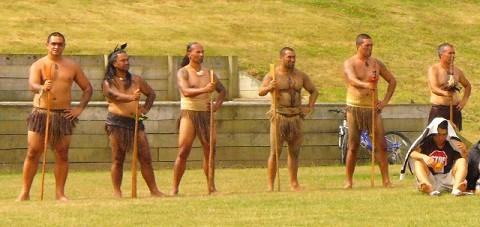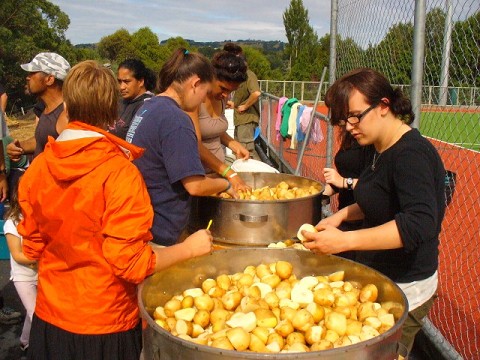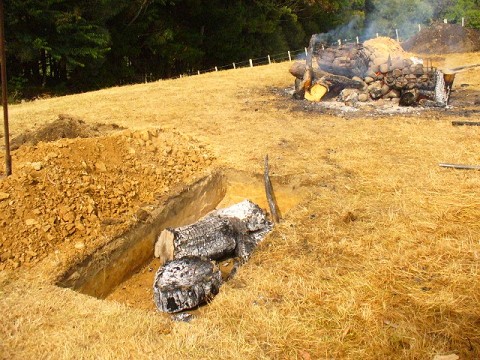
The week started on Sunday night with the Youth With a
Mission, or YWAM, Jubilee – celebrating 50 years of mission work around the
world. Though we are not YWAM
missionaries, it was incredibly encouraging and rewarding just being a part of
this celebration – not only of the work God has done through this organization,
but what He is doing in missions throughout the world. YWAM has sent over 4 million missionaries to
every nation in the world, empowering young people to witness to and teach
world leaders, refugees, guerilla militants, fashion designers, indigenous
people, businessmen, etc…the list goes on and the stories they tell are an
amazing testament to the way God works through those who are willing to be
used. People came from over 40 nations, places
like Tonga and Vanuatu and New Caledonia (get out the map), to simply be
together, learn from and about one another, and celebrate.
 On the first day, we got up early and met a group of Maori
On the first day, we got up early and met a group of Maorimen and women (New Zealand’s native people) to prepare food for a traditional
hangi. This included the women peeling
various vegetables (potatoes, yams, pumpkins, etc.) and the men digging the
pit. One pit had already been dug when
we arrived, and our job was to basically replicate the square hole on the
opposite side of the fire. I don’t know
how to explain this any other way than completely. 1. the maori men are not small – they are
big. Really big. 2. One of the ways they evaluat
 e other men is
e other men isby their ability to do manual labor. 3. We were asked to dig a pit
about seven feet long by three feet wide and 2 feet deep…with an axe and a few
spade shovels. 4. to make things more interesting, they decided the pit should be about 5 feet from the largest, hottest fire I have
ever seen. Oh, and by the way, the plot
of ground we were digging on consisted of about 2 inches of top soil and
another 2 feet of rock hard clay. So
much for Sunday being a day of rest.
Needless to say, about two hours and 5 blisters later, the hole was
deemed satisfactory. We piled the
baskets of food in, covered the pile in wet burlap sacks, and then covered the
whole mound in dirt to cook for about 4 hours.
That first bite was worth all the work.
called hongi. You and the other person

touch foreheads, symbolizing a connectedness of mind, and inhale together
through the nose – breathing the same breath.
After we helped them prepare the food that morning, they explained to us
that it is not customary for guests to help with the preparation and
cooking. Usually you are greeted in the
traditional way and served as a guest. They
said that our willingness to step in and serve with them – taking first the
position of servant and not one of honor was a great testament to the spirit of
Jesus. We then went from person to
person, sharing the hongi greeting. This
action signifies that one is no longer considered a visitor, but rather a
person of the land. Such a moving
gesture.
The Jubilee weekend was filled with many new cultural
experiences from all over the world. We
made new friends from around the globe and we were able to witness as they each
gave us unique displays of their various traditions, clothing, and celebratory
dances. It was a beautiful joining of
cultures and peoples that really spoke to me about how vast God is. I was able to witness a very literal view of
the magnitude of God’s kingdom and just how varied his children are. God is at work around the world and I am so
fortunate to be able to be a part of that story.








